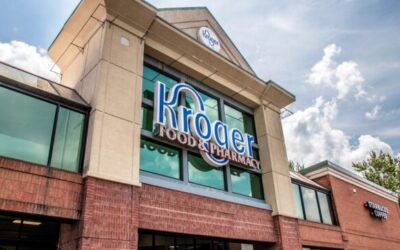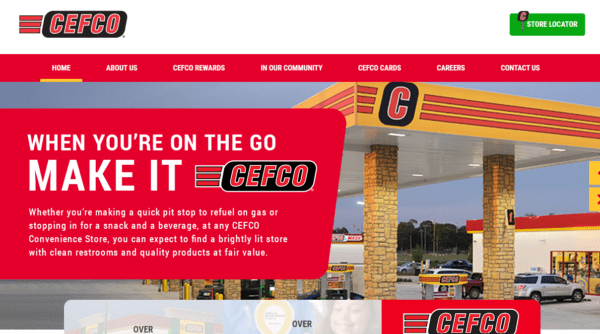Traceability is the Foundation of Supply Chain Due Diligence


A seismic shift is on the horizon for retail businesses operating in Europe. In December 2023, the European Parliament and the European Council reached a provisional agreement on the Corporate Sustainability Due Diligence Directive (CSDDD), a sweeping law that mandates companies to actively monitor and rectify any human rights and environmental risks within their global supply chains. On track to pass this year and take effect as early as 2026, the directive will establish a new benchmark in corporate accountability and supply chain transparency.
The CSDDD will mandate companies to conduct thorough due diligence on their supply chains to ensure compliance with human rights and environmental standards. Businesses will be required to implement due diligence processes that include risk assessments, risk mitigation measures and monitoring mechanisms. The law will apply to all businesses based in or doing business in the EU, and will mandate transparency and reporting on due diligence efforts, with companies expected to provide information on their due diligence policies and actions taken.
This impending regulation is part of a decisive global push for more transparent and ethical supply chains, following in the wake of other supply chain due diligence laws that have recently passed across Europe and North America. Enacted last year, the German Supply Chain Act (LkSG) requires large companies operating in the country to establish preventative measures to prevent child labor, poor working conditions, and environmental abuses at all levels of their supply chain.
The United States has cracked down on forced labor with its Uyghur Forced Labor Prevention Act, enacted in 2022 and targeted at imported goods from China’s Xinjiang region. That region is responsible for roughly one-fifth of the world’s cotton supply, much of which is feared to be tainted by coerced labor and human rights abuses. Canada, meanwhile, kicked off 2024 by enacting its own supply chain law, aligning the country with the growing global commitment to eradicating modern slavery and promoting social sustainability.
As the CSDDD moves closer to becoming reality, the call for brands and retailers to fortify their supply chains with robust traceability solutions has never been more urgent. These regulations have made it abundantly clear that a superficial understanding of an enterprise’s supply chain is no longer sufficient. Companies are now expected to have a comprehensive and documented grasp of their entire supply chain, from top to bottom, and that requires a true commitment to traceability.
Brands and retailers must remember that this push isn’t solely driven by regulatory pressures. It’s also a response to changing consumer behaviors. Today’s consumers are increasingly aware of the social and environmental footprint of their purchases, with 75% of U.S. consumers now saying they’re concerned about the environmental impact of products they buy.
Brands that can provide transparency and ethical assurances in their supply chains can build stronger connections with these customers, enhancing brand loyalty and carving out a competitive edge in a crowded market.
Compliance Starts with Traceability
To comply with these forceful new supply chain laws, brands and retailers must implement comprehensive due diligence processes to ensure thorough risk assessments, effective mitigation measures and robust monitoring systems. Businesses must scrutinize every tier of their supply chain, from raw material sourcing to final product delivery, ensuring that each segment adheres to stringent human rights and environmental standards.
This requires a shift from traditional supply chain practices to a more transparent, multi-tier approach. Companies will need to invest in technologies and platforms that offer real-time visibility and traceability across their entire supply chain, enabling them to quickly identify and address any areas of concern.
In the near future, this traceability will need to extend to the component level for every item on the bill of materials at all tiers, underscoring the necessity for advanced digital platforms to manage these intricate processes. Such platforms offer more than traditional record-keeping; they enable real-time visibility and documentation, which is critical for adhering to rigorous standards set by laws like the CSDDD. Such technologies allow for swift identification and remediation of supply chain inefficiencies, underscoring a company’s commitment to ethical practices.
Beyond mere regulatory compliance, traceability solutions offer a strategic advantage. They provide insights into supply chain efficiency, product quality and risk management. With a deep understanding of their supply chains, businesses can make informed decisions that optimize operations, reduce waste and enhance sustainability efforts.
This strategic value of traceability transforms it from a regulatory response into a core element of a company’s competitive strategy. A critical understanding has emerged in modern supply chain management: traceability and transparency are not just isolated activities but are integral to every process in the supply chain. True traceability must encompass everything from procurement, production and logistics to sales and post-sale services, to create a continuous thread of transparency that weaves through every aspect of the supply chain, offering holistic insights and control.
Traceability solutions like those provided by Pivot88 should provide detailed insights, from the procurement of raw materials to the distribution of finished goods, creating the documentation and assurances that are key to complying with global due diligence laws. Traceability tools allow companies to identify and map intricate relationships between various entities in their supply chain, ensuring greater transparency.
Additionally, solutions with a raw material traceability dashboard can categorize purchase orders based on risk levels and offer granular insights into the country of origin, entities involved and various supply chain tiers. This feature is critical for identifying and mitigating potential risks in the supply chain, enabling companies to proactively address issues before they escalate into larger regulatory or reputational problems.
For example, Pivot88’s robust vendor compliance program includes an extensive audits module that collects vital data about suppliers. This module covers a range of aspects, including environmental audits, technical audits, CSR, labor standards and more, ensuring that every supplier and raw material provider in the chain adheres to the ethical standards expected by regulators and consumers alike.
Investing in traceability solutions is a strategic necessity, pivotal not only for adhering to new regulations but also for defining a brand’s values in a market that increasingly prizes transparency and ethical practices. The companies that respond proactively to this call will be the ones leading the charge in the future of sustainable business, while gaining a competitive advantage by securing the trust of their consumers.
The message for brands and retailers is clear: The time to reinforce your supply chains with robust traceability solutions is now. This is not solely about compliance; it’s about embracing an opportunity to redefine your brand’s position in a rapidly evolving market where transparency and ethical practices are not just valued but expected.
Stephane Boivin is the co-founder of Pivot88. During his more than 25 years working in the supply chain industry, he has held executive positions at companies including Toyota Industrial Group, Deloitte Consulting and Ryder Logistics, and spent over 15 years working in Asia within quality management processes.











